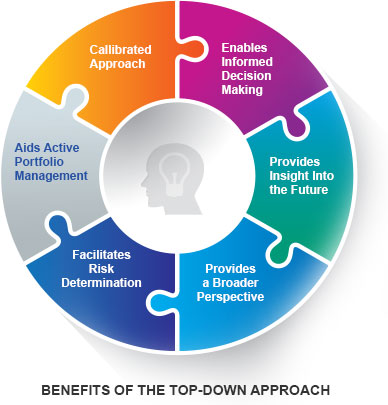
Although it is not required to be a construction manager, it can show your knowledge. After passing a technical exam, and gaining the relevant experience you can get the Certified construction manager designation. This designation is also expensive. A self-study course is required for applicants on the professional construction manager role, risk allocation and legal issues. The Associate Constructor exam must be passed and all other requirements must be met before you can receive certification.
Certification
There are many certifications available for construction managers. Associate Constructor (AC), the first level, is for those who have demonstrated a high level in construction management skills. ACs are also required to adhere to the Code of Ethics of the AIC, and are ideal for individuals with a background in another industry. The AC certification must be renewed once every three years. It is important to understand that certifications may be obtained both online and by taking exams.
A certificate of construction management can be a valuable asset to a construction worker who wants to increase their skills and make more money. Employers will see your construction management certification as proof that you are competent in managing construction projects. Additionally, it differentiates small contractors from larger competitors by demonstrating that you can manage a project. The cost of obtaining a certificate and the type of training required to obtain it vary. The Post-baccalaureate Certificate in Construction Management is for those who have completed a degree in construction. It can help you move up the ladder as a construction manager.

Education
You may be interested in pursuing a certificate of completion if you're seeking to further your education within the field. While it is not required to work, certification acts as a badge of distinction. It is a proof of your knowledge and dedication in the field. The certificate can also be used to network, since the examining board will require proof that you have completed supervisory hours before it will issue the certificate. Additionally, professional societies sponsor credentialing. This can help boost your career at the beginning stages.
Students will learn the principles and practice of project management after completing the program. Students will learn about project management, general contractor, design-build, as well as the entire project life cycle. It emphasizes the value of combining classroom learning and real-world experience. Students will be able to evaluate the quality of construction projects as well as the management processes involved at each stage.
Experience
You should know all requirements to become a certified construction manager before you start your career. Even if you have a high school diploma, an internship is a great way to get started in the construction industry. While internships are often unpaid, they offer valuable experience in construction. Internships also give students the opportunity to be assistants to licensed construction managers. This can help them understand the responsibilities of their job.
The Certified Construction Manager (CCM) credential is the gold standard of personnel credentials in the Construction Management industry. The CCM certification is the only one accredited by ANSI and is a part of the ISO 17024 standard. Leading owners are increasingly specifying Certified Contractor Managers in their construction requests for proposals. A growing number of organizations support the CCM designation with technical and financial support.

Salary
An individual's salary as a certified building manager can vary greatly. There are different hazard levels depending on where you work. A higher-risk job may result in a higher salary or hazard pay contingencies. Certified workers and managers may also command higher starting salaries. This is how you can get the most from your education and experiences. The salary for a certified construction manager ranges from $75,000 to more than $160,000 per annum.
A construction manager earns a salary that is well above the national average. A construction manager may work alongside many consultants, such as architects and civil engineers. Specialists in landscaping, painting and structural steel are needed for some construction projects. They can also work with lawyers or local government officials. A construction manager may consult with city inspectors, or a city planner.
FAQ
What can a manager do to improve his/her management skillset?
You can improve your management skills by practicing them at all times.
Managers must constantly monitor the performance of their subordinates.
You must act quickly if you notice that your subordinate isn’t performing to their standards.
You should be able pinpoint what needs to improve and how to fix it.
What do we mean when we say "project management"?
We mean managing the activities involved in carrying out a project.
These include planning the scope and identifying the needs, creating the budget, organizing the team, scheduling the work and monitoring progress. Finally, we close down the project.
How do you effectively manage employees?
The key to effective management of employees is ensuring their happiness and productivity.
It also means having clear expectations of their behavior and keeping track of their performance.
Managers must be clear about their goals and those of their teams in order to succeed.
They should communicate clearly with employees. They must communicate clearly with staff members.
They also need to keep records of their team's activities. These include:
-
What was accomplished?
-
What was the work involved?
-
Who did it, anyway?
-
Was it done?
-
Why was it done?
This information can help you monitor your performance and to evaluate your results.
What are the four major functions of Management?
Management is responsible to plan, organize, direct, and control people and resources. It includes creating policies and procedures, as well setting goals.
Management is the ability to direct, coordinate, control, motivate, supervise, train, and evaluate an organization's efforts towards achieving its goals.
Management has four primary functions:
Planning - Planning involves determining what needs to be done.
Organizing – Organizing means deciding how to organize things.
Directing - Directing is when you get people to do what you ask.
Controlling – This refers to ensuring that tasks are carried out according to plan.
What kind people use Six Sigma?
Six sigma is a common concept for people who have worked in statistics or operations research. But anyone can benefit from it.
Because it requires a high degree of commitment, only leaders with strong leadership skills can implement it successfully.
What is Six Sigma?
This is a method of quality improvement that emphasizes customer service, continuous learning, and customer service. The goal is to eliminate defects by using statistical techniques.
Motorola's 1986 efforts to improve manufacturing process efficiency led to the creation of Six Sigma.
The idea spread quickly throughout the industry, and today, many organizations are using six sigma methods to improve product design, production, delivery, and customer service.
What is the difference between project and program?
A project is temporary while a programme is permanent.
Projects usually have a goal and a deadline.
It is often done in a team that reports to another.
A program is usually defined by a set or goals.
It is usually implemented by a single person.
Statistics
- Hire the top business lawyers and save up to 60% on legal fees (upcounsel.com)
- The BLS says that financial services jobs like banking are expected to grow 4% by 2030, about as fast as the national average. (wgu.edu)
- As of 2020, personal bankers or tellers make an average of $32,620 per year, according to the BLS. (wgu.edu)
- Your choice in Step 5 may very likely be the same or similar to the alternative you placed at the top of your list at the end of Step 4. (umassd.edu)
- The profession is expected to grow 7% by 2028, a bit faster than the national average. (wgu.edu)
External Links
How To
How can you implement Quality Management Plan (QMP).
QMP, which was introduced by ISO 9001:2008, is a systematic approach to improving products, services, and processes through continuous improvement. It focuses on the ability to measure, analyze and control processes and customer satisfaction.
QMP is a common method to ensure business performance. QMP helps improve production, service delivery and customer relationships. QMPs should cover all three dimensions - Products, Processes, and Services. The QMP that only addresses one aspect of the process is called a Process QMP. QMPs that focus on a Product/Service are known as "Product" QMPs. QMP is also used to refer to QMPs that focus on customer relations.
Scope is the most important element in implementing a QMP. Strategy is the second. They are defined as follows:
Scope: This determines the scope and duration of the QMP. If your organization wishes to implement a QMP lasting six months, the scope will determine the activities during the first six month.
Strategy: This describes how you will achieve the goals in your scope.
A typical QMP includes five phases: Design, Planning, Development and Implementation. The following describes each phase.
Planning: This stage determines the QMP goals and prioritizes them. To get to know the expectations and requirements, all stakeholders are consulted. Once the objectives and priorities have been identified, it is time to plan the strategy to achieve them.
Design: The design stage involves the development of vision, mission strategies, tactics, and strategies that will allow for successful implementation. These strategies are put into action by developing detailed plans and procedures.
Development: The development team is responsible for building the resources and capabilities necessary to implement the QMP effectively.
Implementation: This refers to the actual implementation or the use of the strategies planned.
Maintenance: This is an ongoing process to maintain the QMP over time.
Additional items must be included in QMP.
Participation by Stakeholders is essential for the QMP's continued success. They should actively be involved during the planning and development, implementation, maintenance, and design stages of QMP.
Project Initiation - A clear understanding of the problem statement, and the solution is necessary for any project to be initiated. In other words, they must understand the motivation for initiating the project and the expectations of the outcome.
Time Frame: The time frame of the QMP is very critical. If you plan to implement the QMP for a short period, you can start with a simple version. However, if you have a long-term commitment, you may require more elaborate versions.
Cost Estimation: Another important component of the QMP is cost estimation. It is impossible to plan without knowing what you will spend. Therefore, cost estimation is essential before starting the QMP.
QMPs are not just a written document. They should be a living document. It can change as the company grows or changes. It is important to review it periodically to ensure it meets all current requirements.